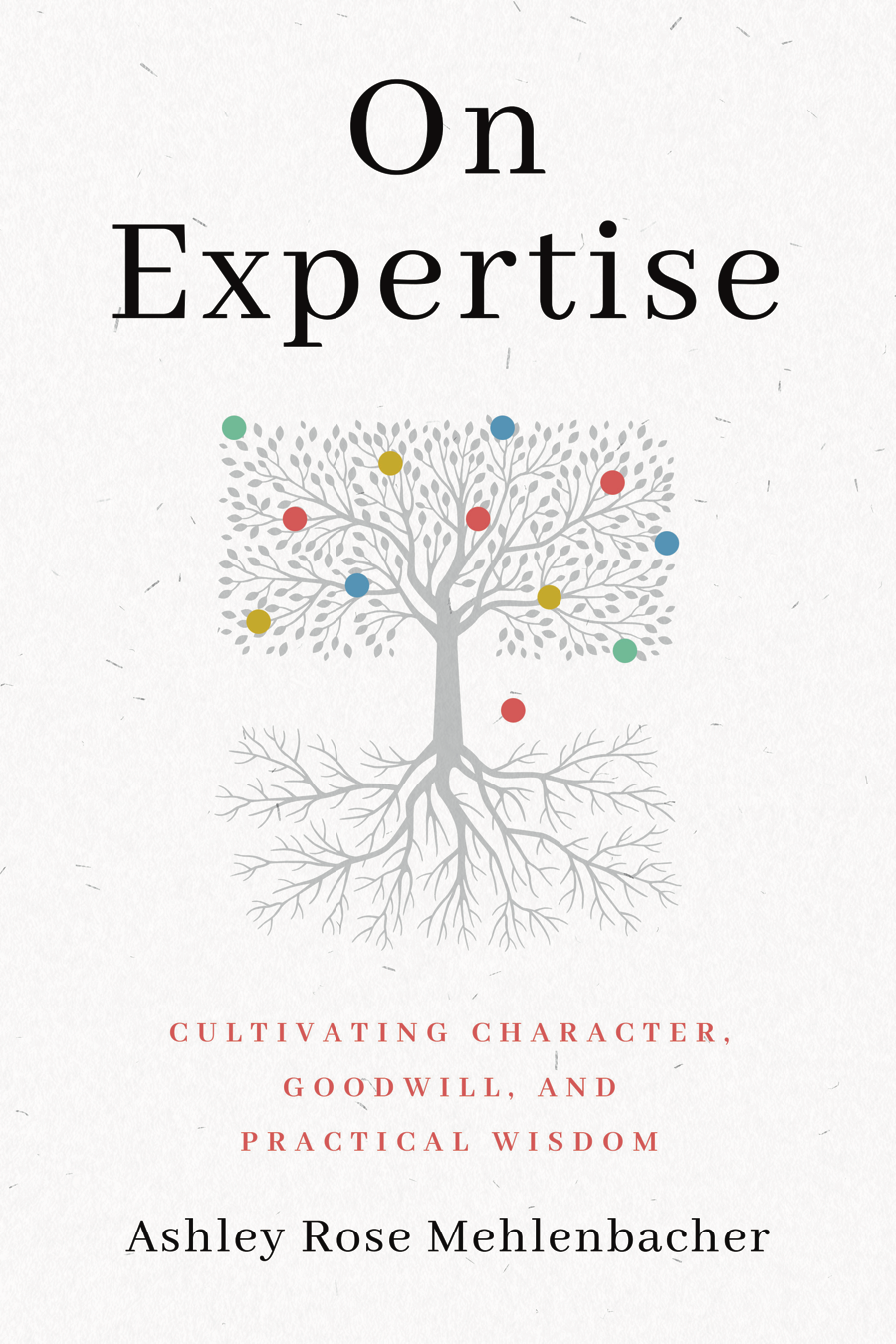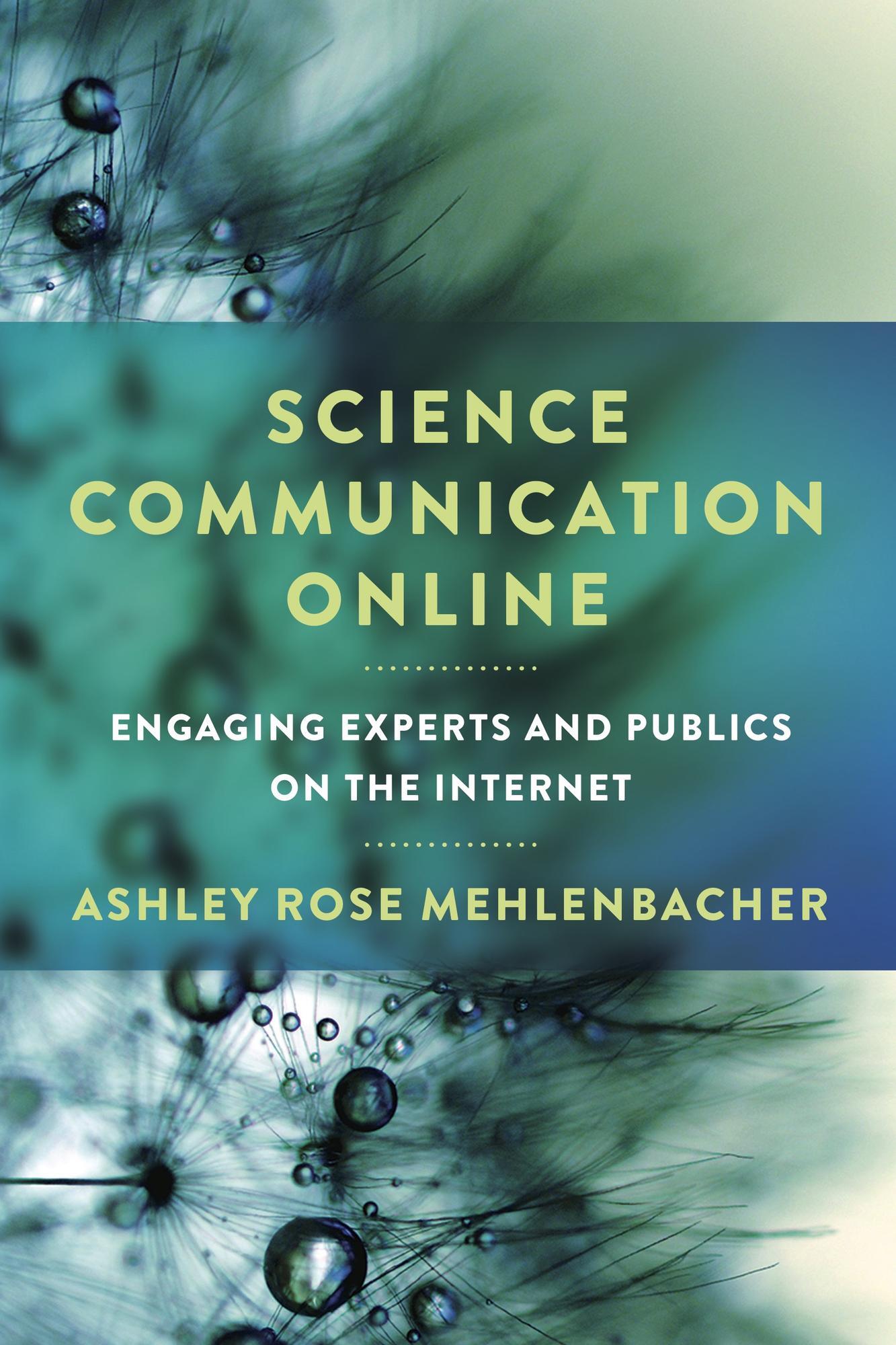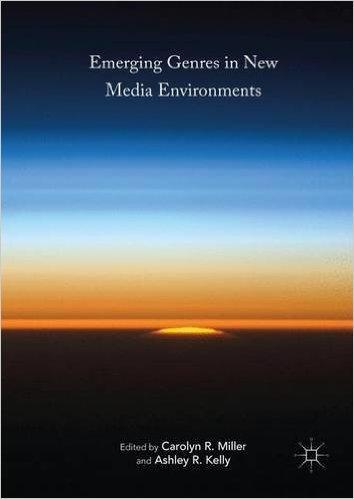On Expertise
A 2023 Choice Outstanding Academic Title (Psychology).
 There is a deep distrust of experts in America today. Influenced by populist politics, many question or downright ignore the recommendations of scientists, scholars, and others with specialized training. It appears that expertise, a critical component of democratic life, no longer appeals to wide swaths of the body politic.
There is a deep distrust of experts in America today. Influenced by populist politics, many question or downright ignore the recommendations of scientists, scholars, and others with specialized training. It appears that expertise, a critical component of democratic life, no longer appeals to wide swaths of the body politic.
On Expertise is a robust defense of the expert class. Ashley Rose Mehlenbacher examines modern and ancient theories of expertise through the lens of rhetoric and interviews some forty professionals, revealing how they understand their own expertise and how they came to be known as "experts." She shows that expertise requires not only knowledge and skill but also, crucially, an acknowledgment by others-both specialists and laypeople-that one is a credible authority. At its heart, expertise is a rhetorical construct, and to be persuasive, experts must have the ability to apply their knowledge and skills rightly-in the right way, at the right time, to achieve the right end. Ultimately, Mehlenbacher argues that experts apply their technical knowledge effectively and win others' trust through acting prudently and cultivating goodwill.
Timely, practical, and sophisticated, On Expertise provides vital scaffolding for our understanding of expertise and its real-world application. This book is essential for beginning the work of rehabilitating the expert class amid a politics of extreme populism and anti-intellectualism.
"It is noteworthy that the book gives so much attention to citizen scientists and their assessment of expertise because it underscores how important making a meaningful contribution is as a facet of expertise."—Julia Metag, Public Understanding of Science
"Mehlenbacher's expansive understanding of the conceptualization, application, and reception of expertise is much needed—even essential—in the present cultural moment. [...] Highly recommended."—L. H. Taylor Jr., CHOICE
"Expertise that is trustworthy, under this formulation, thus depends on performances and ways of claims’making that conform to the values considered to be good by the expert community and broader society."—Larry Au, Contemporary Sociology
“On Expertise is an important and well-executed project, combining theoretical discussions with qualitative data collections such as surveys and interviews to answer the question of whether we can change the public’s attitude toward expertise, and its ability to participate in discourses of expertise, for the better. With cautious optimism, it enters into a crisis with a long and sordid history of a public's deep distrust and skepticism.”—E. Johanna Hartelius, editor of The Rhetorics of US Immigration: Identity, Community, Otherness
Available from Penn State UP. Paperback available: 29.95 USD. Published in the RSA Series in Transdisciplinary Rhetoric, a collaboration between Pennsylvania State University Press and The Rhetoric Society of America. Cover design by theBookDesigners.
Science Communication Online
 Get the book free! Free/Open Access Creative Commons BY-NC-ND license version available online as a PDF here (click the top file under "View/Open" after the link: https://kb.osu.edu/handle/1811/87159
Get the book free! Free/Open Access Creative Commons BY-NC-ND license version available online as a PDF here (click the top file under "View/Open" after the link: https://kb.osu.edu/handle/1811/87159
Handouts of key findings/genre moves available on the Genre Across Borders project site: https://genreacrossborders.org/content/science-communication-resources
Uncloistered by the web, science is finding its way into previously unimagined audiences. Whether collecting data in one’s backyard to help wildlife experts manage wolf populations or even funding research out of one’s own pocket, nonexperts can engage science at an unprecedented scale. As science communication has moved online, a range of important new genres have emerged that put professionals and the public into conversation with each other. In Science Communication Online: Engaging Experts and Publics on the Internet, Ashley Rose Mehlenbacher takes up these “trans-scientific” genres to explore how scientists are adapting their communications, how publics are increasingly involved in science, and how boundaries between experts and nonexperts continue to shift.
Bringing together genre studies and the rhetoric of science, Mehlenbacher examines a range of new forms of science communication that challenge traditional presumptions about experts and nonexperts—including Twitter and Reddit AMAs, crowdfunding proposals such as Kickstarter and Experiment.com, civic-minded databases such as Safecast, and the PLOS blogging network. Science Communication Online illustrates the unique features of these genres and connects them to their rhetorical functions and the larger context leading to their emergence and evolution—from the democratization of science, challenges to expertise and expert status, and new political economies. Science Communication Online captures the important moment we find ourselves in now—one not defined by science and society but science in society.
"Mehlenbacher’s approach here is compelling and cohesive, connecting the theoretical basis of the book to the selected case studies in a way that develops a model for understanding broader historical trajectories and the current science communication landscape." —Scott S. D. Mitchell, Canadian Journal of Communication
"Of interest to all in the sciences and those among the interested public who wish to participate in new ways or to be better informed about the opportunities. Summing up: Recommended.” —R. E. Buntrock, CHOICE
"Fitting with the book’s blending of the rhetoric of science scholarship with genre studies, this book will be of interest to genre studies and science communication scholars. [...] The mapping of the genre-ing discourses of science communication both furthers our understanding of how genres operate and shows how scientists have adapted their communications to shifting exigencies and audiences in online spaces." —John Rountree, Southern Communication Journal
“Science Communication Online is a novel and thoroughgoing exploration of trans-scientific genres. The analyses presented provide a critical snapshot of the emerging digital scientific communication landscape. I fully expect the book to serve as an important touchstone for future scholarship on trans-scientific genres.” —S. Scott Graham
“Mehlenbacher’s insights on trans-scientific genres—genres in between the professional and popularizing genres of scientific communication, such as crowdfunding sites, open databases, and blogs—expand our understanding of both genre-ing activity (how genres coalesce, evolve, and work) and the emerging ways scientists communicate in online spaces.” —Jonathan Buehl
Available for order online. Paperback available: 29.95 USD/ 39.42 CAD. Cover design by Susan Zucker.
Emerging Genres in New Media Environments

This volume explores cultural innovation and transformation as revealed through the emergence of new media genres. New media have enabled what impresses most observers as a dizzying proliferation of new forms of communicative interaction and cultural production, provoking multimodal experimentation, and artistic and entrepreneurial innovation. Working with the concept of genre, scholars in multiple fields have begun to explore these processes of emergence, innovation, and stabilization. Genre has thus become newly important in game studies, library and information science, film and media studies, applied linguistics, rhetoric, literature, and elsewhere. Understood as social recognitions that embed histories, ideologies, and contradictions, genres function as recurrent social actions, helping to constitute culture. Because genres are dynamic sites of tension between stability and change, they are also sites of inventive potential. Emerging Genres in New Media Environments brings together compelling papers from scholars in Brazil, Canada, England, and the United States to illustrate how this inventive potential has been harnessed around the world.
Outstanding Features:
Explores cultural change over time as revealed through the creation and emergence of new media genres.
Includes attention to visual and multimodal genres (19th-century photography, public commemorative sites, digital artistic works, videogames) as well as text-centric genres.
Incorporates contributions from multiple disciplines (art history, communication, education, composition, game studies, literature, rhetoric and technical communication) and multiple countries (Brazil, Canada, the UK and the US).
Connects new media studies, rhetorical analysis and cultural innovation and transformation through genre theory.
“This volume uses our current and previous experience to address the core questions where do genres come from and how do they come to be. From the important opening theoretical essay by Carolyn Miller that weighs the various models of genre origins to the many well-documented cases in the following chapters, this book gives us much grist to think about the nature of genres, their relation to technologies, and the protean landscape of genres before us…” (Charles Bazerman, University of California, USA)
“Emerging Genres in New Media Environments is a brilliant exposition of a crucial topic in genre studies and in cultural studies at large. Miller and Kelly’s anthology is wide ranging, sharp, and rich, with an impressive dynamic between theory, subject matter, and interpretation. It promises to be a landmark publication.” (Sune Auken, University of Copenhagen, Denmark)
“This collection adds to the growing body of knowledge about the relationship between genre and media and proposes new directions for future research on genres, thus making a unique and timely contribution to genre studies. The volume showcases cutting-edge, original research that addresses a variety of key questions about genre development, emergence, and change in the contexts of new media. The collection promises to become as important to the field of genre studies as Miller’s 1984 seminal article 'Genre as social action.'” (Natasha Artemeva, Carleton University, Canada)
